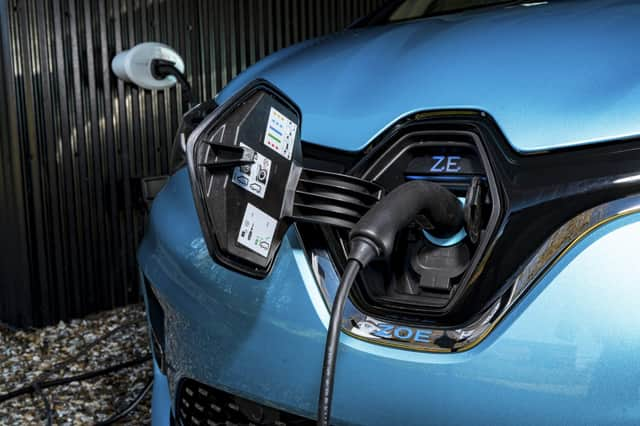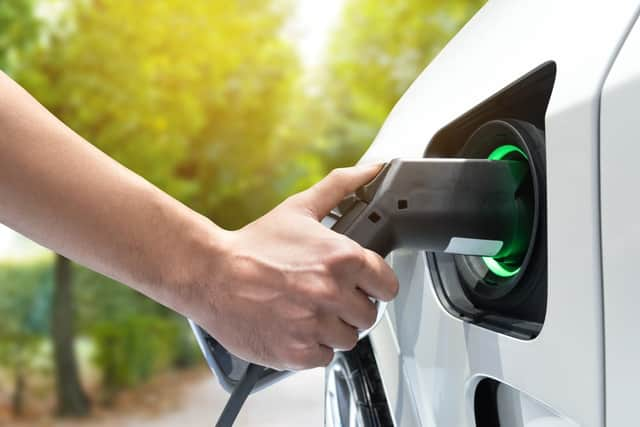Energy firms could get powers to cut off EV charging at peak times


Electricity companies could be allowed to use smart meters to cut off power to electric vehicle charging points during periods of high demand.
Proposals made to energy watchdog Ofgem would see suppliers given access to disable high-consumption devices such as EV home chargers and electric central heating to help manage demand.
Advertisement
Hide AdAdvertisement
Hide AdThe proposed changes to the Distribution Connection and Use of System Agreement, state: “Electricity networks in Great Britain were not designed to accommodate the significant additional demand that certain consumer devices (such as electric vehicle (EV) chargers) presents.
“In some circumstances, distributors will be required to act to find a balance between their obligation to operate cost-effective, safe and reliable electricity networks and the need to support customers who wish to adopt low carbon technologies such as EVs.”


To do this, it proposes allowing distributors to switch off supply to high-drain devices.
The report emphasises that the measures would be a last resort in “emergency situations” where other market mechanisms have failed. It also states that customer participation in any such arrangements would be voluntary but that affected EV owners would not be compensated for any interruption to their charging.
Advertisement
Hide AdAdvertisement
Hide AdThe National Grid’s project director for transport decarbonisation, Graeme Cooper, previously said that the UK already has capacity to cope with the mass adoption and charging of EVs. In February 2020 he stated: “Even if the impossible happened and we all switched to EVs overnight, we think demand would only increase by around 10 per cent. So we’d still be using less power as a nation than we did in 2002 and this is well within the range of manageable load fluctuation.”
However, he did say that a supply management such as that proposed might be necessary: “The traditional evening peak of electricity demand is between 6 and 8pm, and this might well coincide with people returning from their commute and plugging in their cars.
“We ideally don’t want to add to that evening peak and need to spread that demand better.
"With this in mind, recently the Government’s EV Energy Taskforce recommended that all future car chargers should be ‘smart by design’. This means that no matter what time you come home and plug your car in at, it will charge when you need it but will pause during that evening peak when energy is most expensive and demand on the grid is highest.”
Advertisement
Hide AdAdvertisement
Hide AdResponding to the report, Ofgem said: “The process to consider this proposal is ongoing, and a decision is not expected before spring 2021. 'We will take the final decision on whether this proposal is approved, taking into account our statutory duties to protect current and future consumers.”